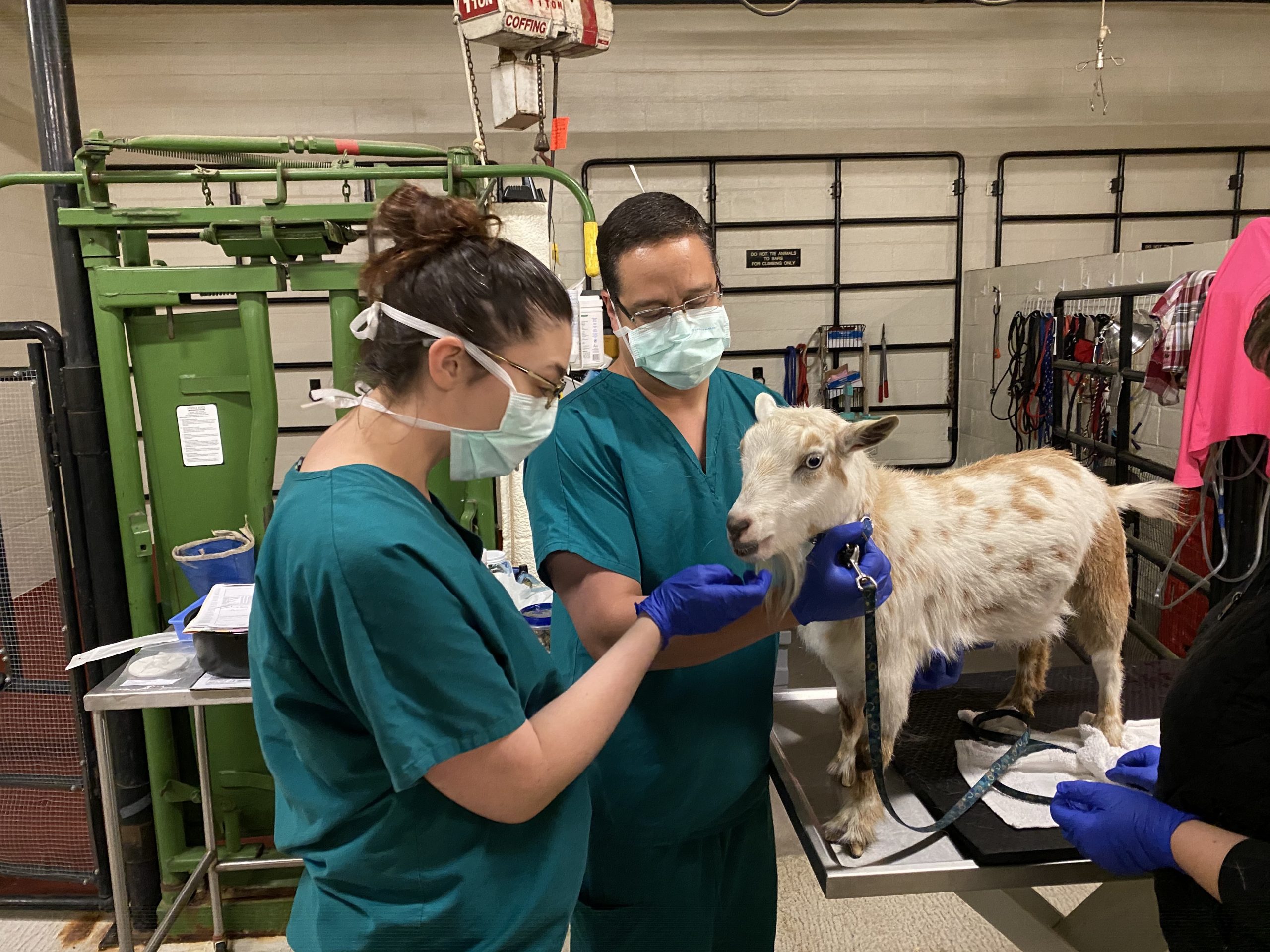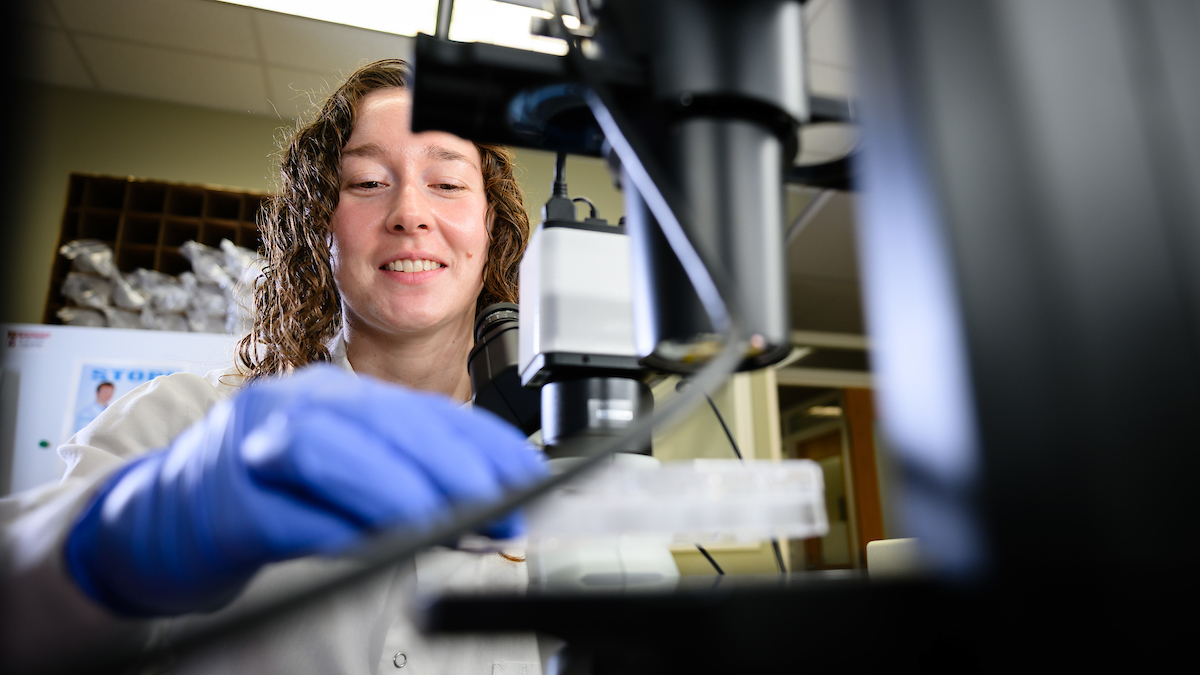Patient Spotlight: A Special Chemotherapy Approach for Rosie the Goat

Rosie the goat started life needing some extra care, so she was bottle fed, slept inside with her human family and went out to the pasture each day to practice being a goat.
Rosie has since found her perfect place, regularly dressing up, marching down the aisle and posing for wedding pictures at the Chapel Hill venue run by her family.
Her human mom, Brenda Leeper, decided to share Rosie’s adventures in a children’s book, part of her series called “Tales of Farmer Brenda.”
“I just felt like she had such a great story, and she’s very social,” says Leeper. “I wanted to write a little book about her to tell her story.”
Late last year, Rosie’s story took a turn when Leeper noticed a growth on her backside. Through a biopsy, her primary care veterinarian diagnosed it as a type of cancer called squamous cell carcinoma and referred Rosie to the NC State Veterinary Hospital for treatment.
CVM food animal veterinarian and graduate research assistant Jennifer Halleran says Rosie’s type is more commonly seen in cattle eye tumors. Depending on the size and location, squamous cell carcinoma in goats is often treated through surgery.
“For Rosie, her tumor was very deep inside her body and surgery was not going to be a feasible option which is why we opted for a chemotherapeutic,” says Halleran.
During her residency, Halleran recalled using a special chemotherapeutic called Immunocidin to treat cattle, which was injected directly into a tumor to cause regression. She thought this might be a good option for Rosie.
“We were able to get some Immunocidin samples and did intralesional or intratumor injections of the squamous cell carcinoma mass,” she says. She received about five treatments over the course of three months, and it’s in almost complete regression right now.”
Rosie the goat at the NC State Veterinary Hospital
Get a behind-the-scenes look at Rosie’s treatment and recovery.
The early results are promising news for Rosie’s family. “So far everything is looking good,” says Leeper. “We’re heading in the right direction.”
Halleran says Rosie’s case could help others, too.
“It is probably going to be a feasible treatment option for squamous cell carcinoma for pet small ruminants in the future,” she says. “It’s really exciting to see the progress that Rosie has been able to make.”
As another important chapter in the many adventures of Rosie’s life, her care at the NC State Veterinary Hospital is now documented in the children’s book that bares her name. It’s a special way for Leeper to thank Halleran and the other veterinarians.
“I can’t say how great all the people here have been with helping with Rosie,” says Leeper. “You all have become my new best friends.”
~Mike Charbonneau/NC State Veterinary Medicine
- Categories:


